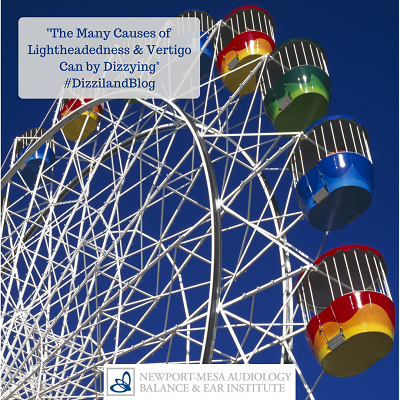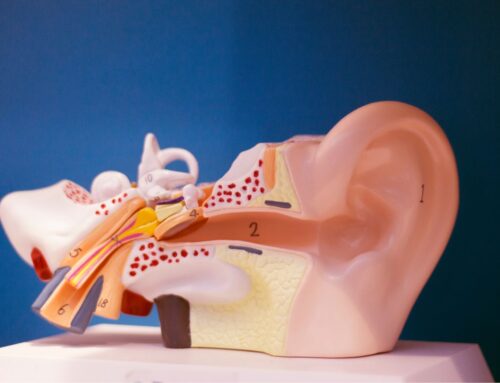By Jennifer Grace, Clinical Director

Pinpointing the precise sensation(s) you’re feeling when relaying your dizziness to your physician is critical in getting proper diagnosis and treatment for your medical condition. There are several terms to describe your unique situation and we can help you distinguish more accurately what you’re feeling that you can share with your doctor.
Lightheadedness
Lightheadedness is a form of dizziness that gives you the feeling as though you might faint or pass out. Although it may be dizzying, it doesn’t feel like your environment is moving and often improves after you lie down. Occasionally it can feel as though you might vomit.
Vertigo
Vertigo is similar to lightheadedness, but it differs in subtle and not-so-subtle ways. Vertigo may feel as though your surroundings are moving when they aren’t. You may also feel off-kilter, or like you’re spinning, tilting or falling. When severe, it may lead to extreme nausea and vomiting. It can also affect your ability to stand up or walk normally. When feeling vertigo, you are more at risk for a fall and subsequent serious injury.
Dizziness can occur at any age, but older people are more susceptible to it. The areas of the body that can affect your balance include your inner ear, eyes, brain, as well as the nerves in your feet and spine. If any of these are having issues, you can feel dizzy.
It’s important that you and your physician rule out the potential causes for your dizziness. It could be something more serious than a problem with your inner ear or vestibular system. Seek medical help immediately if you are dizzy and faint, fall or have trouble walking, as well as if it accompanies any of these symptoms:
- Chest pain
- Severe headache
- Head injury
- High fever
- Irregular heart rate
- Seizures
- Shortness of breath
- Stiff neck
- Sudden change in speech, vision, or hearing
- Vomiting
- Weakness or numbness in your face
- Weakness in your leg or arm
If you aren’t experiencing any additional symptoms stemming from a serious medical condition, your dizziness could possibly be related to other issues such as Benign Paroxysmal Positional Vertigo (BPPV), labyrinthitis (vestibular neuritis or inflammation of the nerves in the ear, caused by infection) or Meniere’s Disease.
Regardless of the underlying cause for your dizziness, we encourage you to make an appointment with your primary care physician to discuss your symptoms. Be sure to describe them as specifically as possible. You shouldn’t have to live with debilitating vertigo or lightheadedness. If your physician suspects a vestibular disorder might be the issue, you can request to see one of our doctors of audiology so we can conduct a comprehensive balance evaluation.
At Newport-Mesa Audiology Balance & Ear Institute, we are able to diagnose and treat vestibular dysfunction to reduce/eliminate our patients’ dizziness, vertigo and imbalance, all in the same location; either at our Newport Beach or Ladera Ranch office. Our advanced medical technology, including our proprietary Advanced Vestibular Treatment™ (AVT), as well as our exceptional patient-focused care will help put your mind at ease and get you on the path to recovery and balance. Contact our Patient Services Team to learn more – www.dizziland.com/contact or 949.274.8399.






Leave A Comment